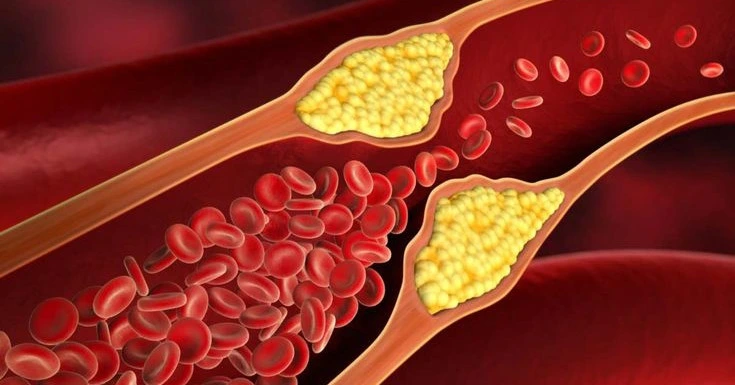Eggs have been part of the breakfast for millions of people around the world for years. However, did you know that eggs are not only delicious, but also contain some very healthy substances?
In this article, I present you the most important egg nutrition facts that I have learned from reading countless nutrition books over the last years. Let’s start with a quick summary:
Eggs are an excellent source of protein, with one large egg containing about 6 to 7 grams. The high bioavailability makes them particularly interesting for athletes. (I will explain more details about this later in the article).
They also contain essential vitamins and minerals such as vitamin A and iron, but also some lesser-known, very important substances such as choline, which is essential for our brain function.
Egg Nutrition Facts
But what about the cholesterol content of eggs? For many years, eggs were thought to be unhealthy due to their high cholesterol content. Although this has been considered outdated for years and countless studies have proven the opposite, this myth still persists. In fact, even the American Heart Association now recommends consuming one egg per day as part of a healthy diet.
Nutritional Profile of Eggs
Eggs are one of the few foods that contain nearly all the essential vitamins and minerals that exist. No wonder, after all, these nutrients were once thought to create a living being. In this section, we will take a closer look at the nutritional profile of eggs.
Macronutrients in Eggs
Protein
Eggs are a great source of protein, with one large egg containing about 6 to 7 grams of protein with a high bioavailability. This means that the protein contains an optimal amount of essential amino acids that the body cannot produce itself making eggs an extremely efficient source of protein.
The biological value of proteins indicates how efficiently the body can absorb and use the amino acids. The higher the biological value, the better the protein meets the body’s needs.
Eggs serve as a reference level for the biological value with a worth of 100.
Fats
Eggs also contain healthy fats, with most of the fat found in the yolk. One large egg contains about 5 grams with just over 1 gram of saturated fat.
The variety of these fats is beneficial for heart health and supports various bodily functions.
Carbohydrates
Eggs are low in carbohydrates with less than 1 gram per egg.
Vitamins and Minerals
Eggs contain almost all essential micronutrients, but are particularly rich in the following (data per 100g):
- Vitamin A: 170µg (20% of daily requirement)
- Vitamin K: 25µg (28% of daily requirement)
- Vitamin B2: 0,17mg (15% of daily requirements)
- Vitamin B7: 30µg (100% of daily requirements)
- Vitamin B12: 0,7µg (24% of daily requirements)
- Zinc: 1,2mg (11% of daily requirements)
- Choline: 226mg (50% of daily requirements)
Vitamin A
Vitamin A is important for vision, the immune system and skin health. It supports the formation of rhodopsin, a protein required for vision in dim light.
Vitamin K
Vitamin K plays a crucial role in blood clotting and is essential for the formation of proteins involved in this process. It also contributes to bone health.
Vitamin B2
Riboflavin plays a vital role in energy metabolism in the body. It facilitates the conversion of food into energy and is essential for maintaining healthy skin, eyes, and nerves.
Vitamin 7
Biotin is often known as the “beauty vitamin” as it promotes the health of skin, hair and nails. It also plays a role in the carbohydrate metabolism.
Vitamin B12
Vitamin B12 is essential for the production of red blood cells and the protection of nerve cells.
Zinc
Zinc is an essential element that strengthens immune function, promotes wound healing and is involved in DNA synthesis. It also plays a role in the development and function of taste and smell.
Other important contents
Choline
Eggs are one of the best dietary sources of choline, a nutrient that is important for brain health. Choline is involved in the production of neurotransmitters, which are chemicals that transmit signals in the brain.
Apart from eggs, choline is also found in meat and organs such as the liver. Vegans in particular, but also mixed dieters who eat little meat and eggs, are often not sufficiently supplied with choline.
Possible symptoms of deficiency mostly affect cognitive performance; “brain fog”, a state of mental confusion, is one possible symptom.
Lutein and Zeaxanthin
Eggs are also a good source of lutein and zeaxanthin, two antioxidants that are important for eye health. These antioxidants are found in the yolk of the egg and may help protect against age-related macular degeneration, a leading cause of blindness in older adults.
In conclusion, eggs are a nutrient-dense food that can be a healthy addition to your diet. They are a great source of protein, vitamins, and minerals, and are rich in choline and antioxidants that are important for brain and eye health.
Health Benefits of Eggs

Now that we know the healthy contents of eggs, lets have a quick look at the practical advantages of these.
Heart Health
As already explained, eggs are a great source of choline, a nutrient that is essential for brain and liver health. Choline also helps to reduce inflammation in the body, which is a risk factor for heart disease. Additionally, eggs contain antioxidants that can help to prevent the oxidation of LDL cholesterol, which can lead to heart disease.
Eye Health
Lutein and zeaxanthin, two antioxdants eggs contain, can help to prevent age-related mascular degeneration, a leading cause of blindness in older adults. Eggs also contain vitamin A, which is essential for healthy vision.
Weight Management
Eggs are low in calories but high in protein, which makes them an excellent food for weight management. Protein has been proven to be the macronutrient with the best satiating effect.
Additionally, the protein in eggs can help to increase muscle mass, which can help to boost metabolism and burn more calories.
Ethics

Looking at all those egg nutrition facts mentioned, from a nutritional science perspective, there is a lot to be said for the regular consumption of eggs.
However, from an ethical point of view, there are unfortunately some arguments against regular consumption which we should take into account when making our decision whether or not to eat eggs.
Profit-oriented animal husbandry is always in conflict with the welfare of the animals kept.
The list of the hens’ suffering is very long and ranges from a lack of space and the resulting behavioral disorders (including cannibalism) to the shredding of male chicks and the premature death of the hens due to the health disadvantages of the species-inappropriate high laying performance.
As this article is not about the ethical but the health aspects of eggs, I will not go deeper into this list here. If you would like to find out more about the ethical disadvantages of the egg consumption, you can do so here.
Conclusion – Ethics
Anyone who does not want to give up eggs because of their health benefits should at least consume eggs that are kept under the best possible conditions (biological) in order to minimize the suffering caused.
Dietary Considerations
When it comes to egg nutrition facts, there are a few dietary considerations to keep in mind. Here are some important things to know:
Cholesterol Content
Eggs are high in cholesterol, with one large egg containing about 186 milligrams of cholesterol. This has led to concerns about the impact of egg consumption on heart health. However, research has shown that for most people, dietary cholesterol has little effect on blood cholesterol levels. In fact, moderate egg consumption has been linked to improved cholesterol profiles in some studies.
The conclusion “food with a lot of cholesterol” = “bad” is therefore long outdated. The correlations are much more complicated and a distinction must be made between LDL cholesterol and HDL cholesterol.

LDL (“Low-density lipoprotein”) cholesterol is often referred to as “bad” cholesterol. It transports cholesterol from the liver to the cells in the body. However, if there is too much LDL cholesterol, it can build up on the walls of the arteries and promote the formation of plaques. These deposits can narrow the arteries and increase the risk of heart disease.
In contrast, HDL (“High-density lipoprotein”) cholesterol is often considered “good” cholesterol. HDL transports excess cholesterol back to the liver, where it is broken down and excreted from the body. A higher HDL level is therefore associated with a lower risk of heart disease.
Overall, research shows that cholesterol health is not just about the amount consumed through food, but also about the type of cholesterol and the overall diet and lifestyle. If you want to find out more about the different types of cholesterol, you can do this here.
Allergy Information
Egg allergies are relatively common, particularly in children. Symptoms can range from mild to severe and can include hives, swelling, and difficulty breathing. If you have an egg allergy, you will need to avoid all egg products, including baked goods, mayonnaise, and other foods that contain eggs. Be sure to read labels carefully and ask about ingredients when eating out.
It’s also worth noting that some people may experience digestive issues when eating eggs. This can include bloating, gas, and diarrhea. If you experience these symptoms after eating eggs, you may want to try limiting your intake or avoiding them altogether.
Eggs in Different Diets
Eggs are a versatile and nutritious food that can be incorporated into a variety of diets.
Vegetarianism
For vegetarians, eggs are an important source of protein, Cholin and Vitamin B12. Choline in particular is very rarely found in food when you exclude meat and organs from your diet, which is why eggs are by far the best choline-source for vegetarians.
Keto and Low-Carb Diets
For those following a keto or low-carb diet, eggs are an ideal food choice. One large egg contains less than 1 gram of carbohydrates, making them a great option for those looking to reduce their carb intake. Additionally, eggs are high in healthy fats, which can help reduce the risk of a variety of diseases as already mentioned.
Cooking and Preparation Tips
Cooking eggs is a versatile task that can be done in many ways. However, the cooking method you choose can affect the nutritional value of the egg.
Boiling and Poaching
Boiling and poaching are some of the healthiest ways to cook eggs. Boiled eggs are cooked in their shells in boiling water. Poached eggs are cooked by gently simmering the egg in water. Both methods require no added fat, which makes them a great option for those watching their calorie intake.
To get the perfect boiled egg, place the egg in cold water, bring to a boil, then simmer for 9-12 minutes, depending on how you like your yolk.
To poach an egg, bring a pot of water to a simmer, add a splash of vinegar, swirl the water, and gently add the egg. Cook for 3-4 minutes until the white is set.
Frying and Scrambling
If you decide to fry or scramble your eggs, I always recommend using extra virgin olive oil or coconut oil because they are the most heat-resistant. Olive oil also contains numerous micronutrients and antioxidants and can be considered very healthy (when consumed in moderation).
FAQ
How many calories does one egg have?
One egg typically contains around 68 to 78 calories. Preparation methods such as frying add extra calories due to the oil used.
How much protein is in one egg?
An average-sized egg contains about 6-7 grams of protein. However, the protein content can range from 4.8 grams in a small egg to 7.9 grams in a large egg.
How many eggs can I eat in a day for a healthy diet?
According to a Healthline article, “many people can eat a couple of eggs per day. But the amount may vary for certain groups.” The American Heart Association recommends that people with heart disease limit their cholesterol intake to 300 milligrams per day, which is equivalent to about one to two eggs.
What is the nutritional difference between egg white and egg yolk?
Egg whites are low in calories, high in protein, and cholesterol-free. Egg yolks are higher in calories and contain fats, cholesterol, and essential nutrients like vitamins A, K, and B12.
Do you eat eggs and why (not)? Let me know in the comment! If you liked this article about Egg Nutrition Facts, you might also enjoy this article explaining the nutritional details of raw honey.
[1] https://www.insider.com/guides/health/diet-nutrition/eggs-weight-loss [2] https://www.healthline.com/nutrition/eggs-for-breakfast-weight-loss [3] https://www.medicalnewstoday.com/articles/323251







